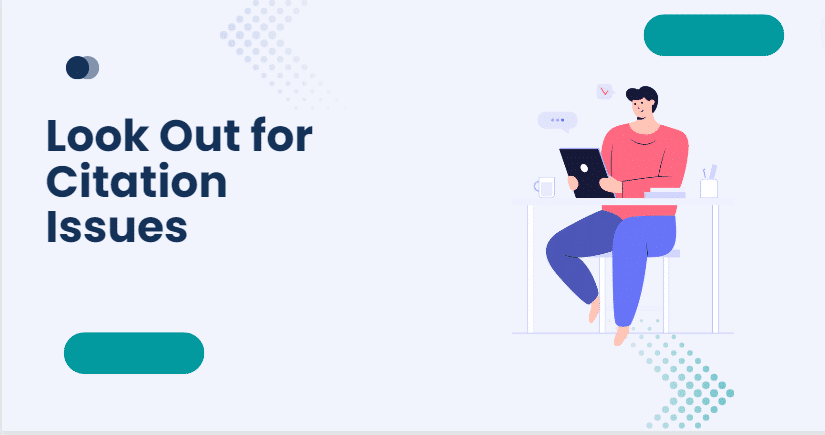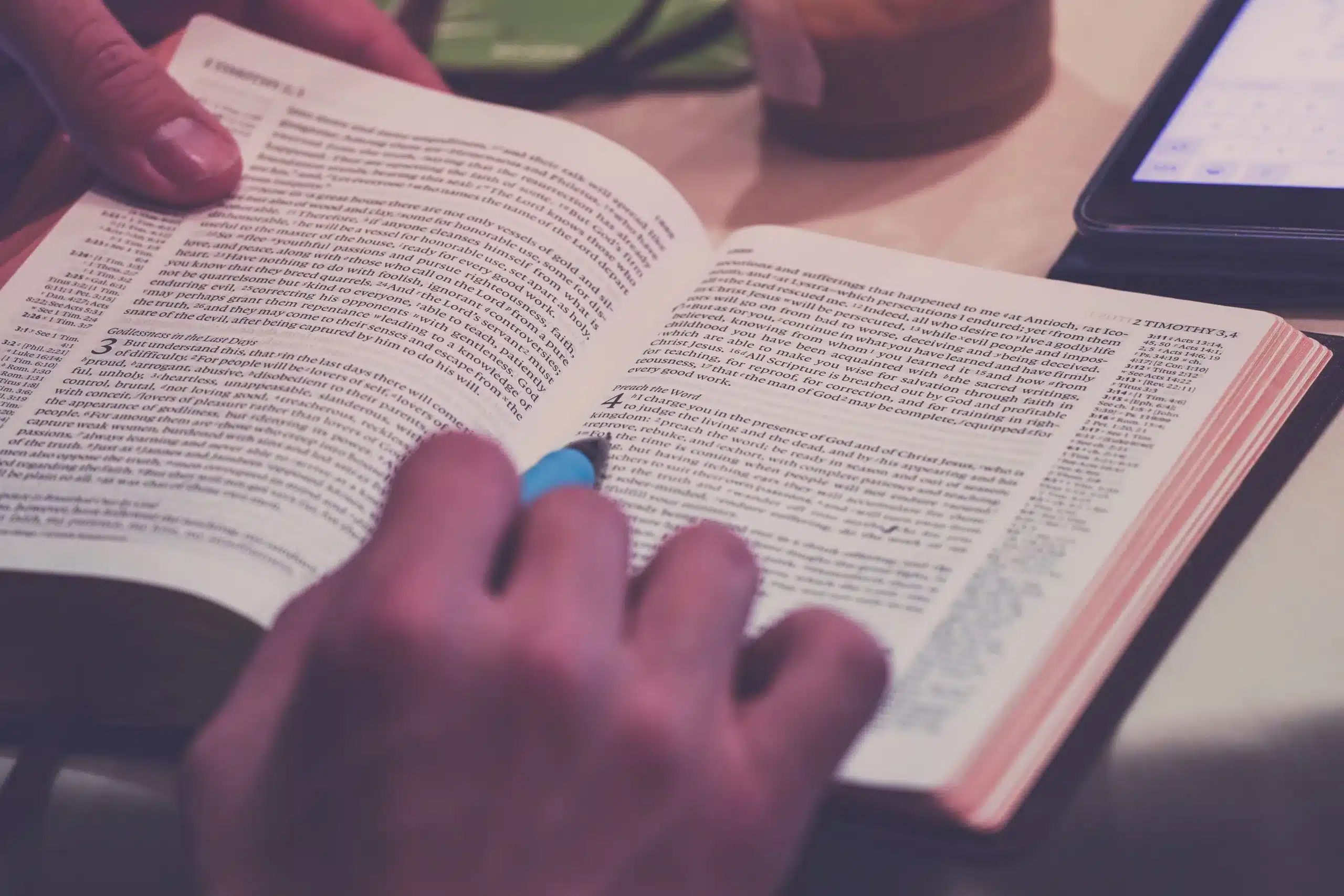Several new writers think that their task is done once a piece of content has been written. They don’t realize that the first drafts are the expressing stage of writing. This means that the intent of first drafts is usually right, but there are bound to be technical mistakes in it.
That’s why a writer’s job is not done the moment a write-up is done. You also have to proofread it. Proofreading is the process of reviewing your written work and removing certain mistakes from it. This can include spelling mistakes, citation issues, grammar errors, and much more.
In this post, we will share our thoughts on this proofreading process. We will walk you through how this is done and what are its benefits. So, if you are a writer who has been ignoring this part of their work, this post will be helpful for you.
What is the Goal of Proofreading?
Most write-ups are written so that a particular audience can read them. If the write-up under discussion is flawed and has errors, then that audience will have a poor experience. So, to avoid that, proofreading is essential.
Here are some aims of this process:
- To remove grammatical errors from the sentences
- To make difficult sentences easier to read
- To remove unintentionally plagiarized parts
- To fix inaccurate spellings
- To remove the irrelevant parts that were added by mistake
Similarly, many other things can be achieved with the help of this. That’s why it is necessary never to skip proofreading.
How to Proofread Properly?

Some people just read their content with little attention and call it proofreading. However, this is not the proper way of doing it. You have to follow a proper procedure to proofread your work the right way. Here, we have listed all the parts of that procedure.
Understand the Meaning of Sentences
If you want to ensure that no error gets left unnoticed, you have to understand the meaning of your writing. Yes, this means every sentence. We know that this might sound like an excruciating task. But it is not. This is because the sentences we are discussing are the ones you have written yourself.
So, how difficult could it be to understand what you created yourself? But still, you need to know the meaning behind every sentence. This is the only way you can spot errors in them because errors are not always grammar or spelling-related. Sometimes, these errors can also be intent-based. You have to look out for them as well.
Read Your Write-Up Out Loud
For some people, reading sentences out loud can be helpful. This is because there is a difference between reading something in your head and hearing it. This can also be useful in spotting mistakes.
For example, if you are reading your work aloud, you might notice some sentences are not sounding right. These sentences probably have a complex structure that needs to be rewritten or paraphrased.
In other words, using this method can also speed up your proofreading process.
Root Out Grammatical Inaccuracies
We have emphasized the importance of grammatical accuracy previously as well. We are discussing this repeatedly because it affects the credibility of your write-up. Let us explain this with a hypothetical situation.
Let’s say you uploaded a rough blog article without reviewing it. If it has grammatical errors, then the reader will think that it is the work of someone illiterate. Even a single grammar mistake can cause a reader to question the authenticity of a piece of content.
This is why you have to be extra careful of grammar errors. Read your work attentively and find grammatical flaws in it. You can also adopt an alternate approach in which you check grammar in an automated manner. This is via an online grammar checker and is much faster than traditional methods.
Find and Edit Extensive and Difficult Sentences
This is a relatively easy step. During proofreading, you have to find sentences that are unnecessarily long and difficult to understand. Find out every single sentence of such nature and break it down into shorter ones.
Given in the following is an example of how you can do it. Suppose this is the sentence you found:
I worked hard to get that job, and then I finally got it once I had a detailed meeting with the officer in which we discussed why I deserved the job.
This is how you can break this sentence into shorter parts:
I worked hard to get that job. I finally got it when I had a detailed meeting with the officer. In the meeting, we discussed why I deserved the job.
You can notice how breaking down one long sentence into 3 shorter ones enhances the overall readability.
Look Out for Citation Issues

Proofreading can also benefit you in finding improper or ignored citations. This is highly important because if you submit or publish a write-up in which plagiarized sections are present, you can face intense consequences.
So, when you are proofreading, make sure that all the references are properly mentioned or linked. Double-check them and make changes to them if required.
Seek Feedback from Others
While proofreading your own work is crucial, it’s also immensely valuable to have fresh eyes review your writing. Others can often catch mistakes or unclear passages that you might overlook. Here’s why seeking feedback is essential:
- Different Perspectives: Your readers may interpret your writing differently from how you intended. Having someone else review your work can provide insight into how others might perceive it.
- Identifying Blind Spots: We all have blind spots when it comes to our writing. Another person can point out areas where you might be too close to the content to notice errors or inconsistencies.
- Enhancing Clarity: Sometimes, what makes perfect sense to you may be confusing to others. Feedback can help you identify areas where clarification is needed and improve the overall clarity of your writing.
- Validation: Positive feedback can boost your confidence, while constructive criticism can help you grow as a writer. Embrace both types of feedback as opportunities for improvement.
When seeking feedback, consider asking colleagues, friends, or mentors who are familiar with your writing style and the intended audience. Be open to suggestions and willing to revise based on the feedback you receive.
Incorporating feedback into your proofreading process can elevate the quality of your writing and ensure that your message resonates effectively with your readers.
What Happens if You Don’t Proofread?
As we said before, the first draft of your work roughly showcases your ideas. You just translate your thoughts into words. In doing so, you usually don’t pay attention to the writing conventions. That is why proofreading is essential. This is what will happen if you don’t do it:
- Your write-up will lose trustworthiness because of multiple mistakes and errors in it.
- You can face legal consequences if there are citation issues.
- If you don’t proofread in academic writing, you can get a bad grade.
- You won’t be able to communicate your message using your content.
- Difficult sentences will reduce the impact of your words.
This and many other consequences can occur if you don’t proofread your writing correctly. That’s why we will once again say that don’t ever ignore this.
Conclusion
The summary of all this would be that, as a writer, your work isn’t done right after finishing a piece of content. There is another step that is just as important. That is proofreading. It is a step that ensures the accuracy and flawlessness of your write-up. Once you proofread, you can edit the inaccuracies and create a highly polished piece of writing.

